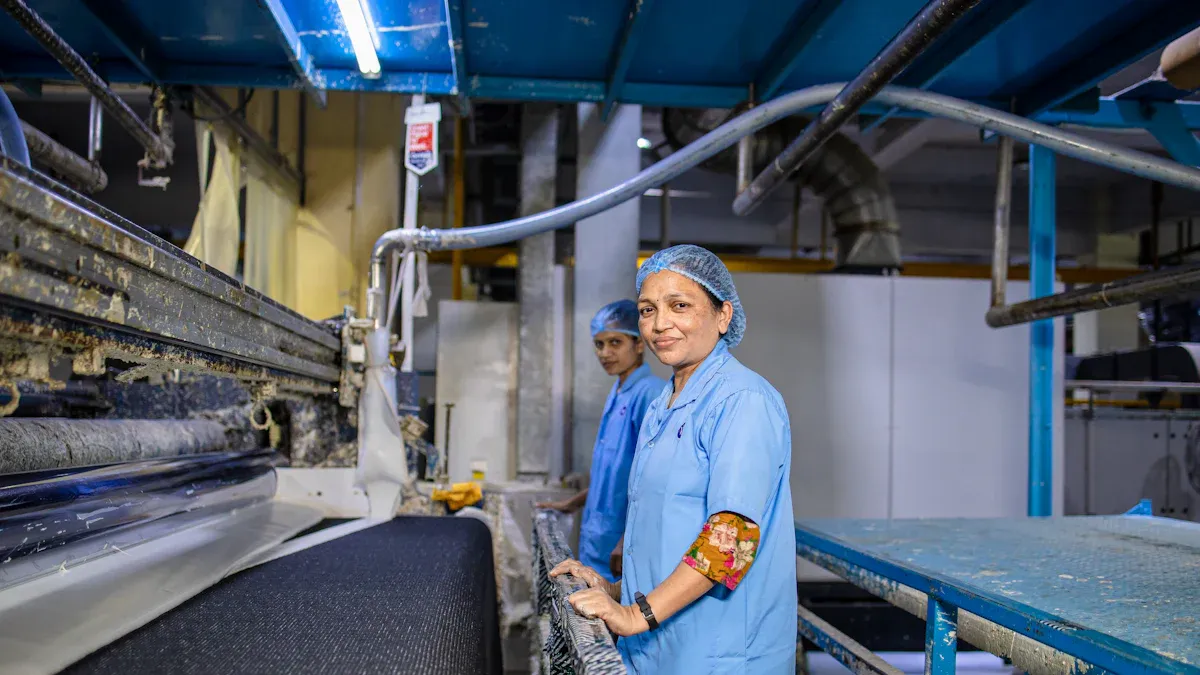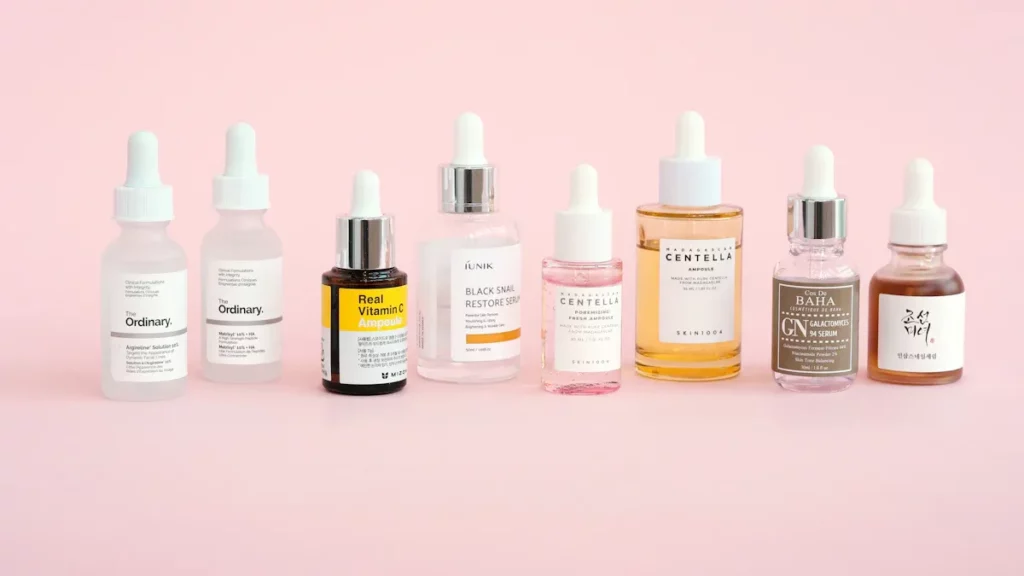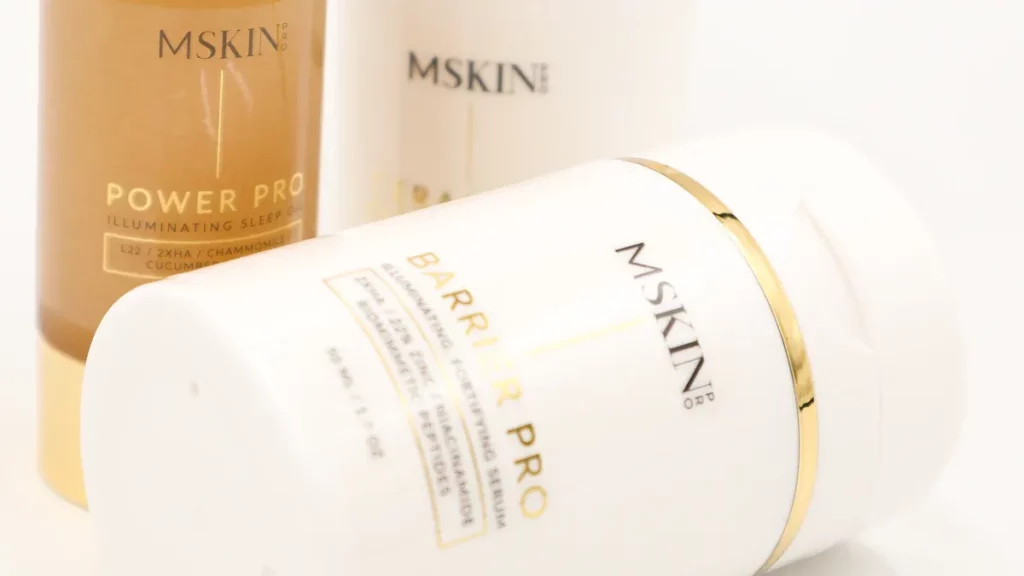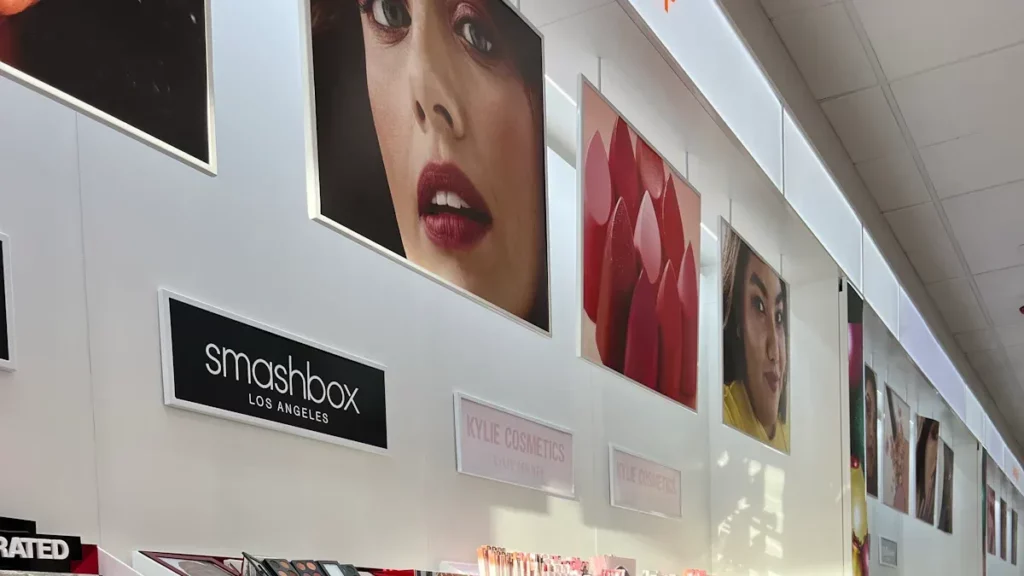
The beauty industry is experiencing a technological revolution. Manufacturing technology is transforming how products are created and delivered, setting new standards for innovation. For example:
The beauty market for AI is projected to grow from $3.27 billion in 2023 to $16.4 billion by 2033, with a CAGR of 19.8%.
Smart devices in beauty are expanding at 18.8% annually, expected to reach $144.2 billion by 2028.
These advancements allow you to enjoy smarter, more personalized products that align with modern expectations.
Artificial Intelligence (AI) and Machine Learning in Manufacturing Technology
AI for Product Innovation and Customization
Artificial intelligence is revolutionizing product innovation in the beauty industry. By analyzing vast datasets, AI enables brands to create personalized formulations tailored to individual needs. Proven Skincare’s ‘The Skin Genome Project’ exemplifies this innovation. It evaluates over 20,000 ingredients and 100,000 products to recommend solutions based on skin type and environmental factors. Similarly, L’Oréal, Neutrogena, and Olay use AI-powered facial recognition and skin analysis tools to deliver customized skincare routines.
AI also enhances customer engagement. Sephora’s chatbots provide tailored product recommendations, while Neutrogena’s Skin360 app tracks health metrics to refine skincare regimens. These advancements in beauty technology not only improve personalization but also strengthen brand loyalty.
Tip: AI-driven customization ensures you receive products that match your unique preferences, making your beauty routine more effective and enjoyable.
Machine Learning in Predictive Analytics and Efficiency
Machine learning plays a critical role in improving manufacturing efficiency. Predictive analytics helps manufacturers anticipate production challenges and optimize processes. For example, General Motors’ predictive maintenance program reduced unplanned downtime by 40% and extended equipment life by 20%. Similarly, Foxconn’s automated optical inspection system decreased field failures by 47%, showcasing the impact of technology on quality control.
In cosmetic manufacturing, machine learning identifies production issues in real time, reducing waste and enhancing efficiency. It also predicts consumer preferences, enabling brands to develop products that align with market demands. These innovations in cosmetology streamline operations and accelerate product innovation.
Company | Initiative | Measurable Outcomes |
|---|---|---|
General Motors | Predictive Maintenance Program | 40% reduction in unplanned downtime, 20% extension of equipment life |
Foxconn | Automated Optical Inspection Predictive System | 47% reduction in field failures, 35% decrease in false rejects |
BMW | Zero-Defect Production Initiative | 31% reduction in quality-related rework, 5% increase in production throughput |
Enhancing Cosmetic Contract Manufacturing with AI
AI is transforming cosmetic contract manufacturing by optimizing production parameters and improving quality control. Advanced algorithms analyze formulations to ensure consistency and compliance with industry standards. Real-time monitoring systems identify and rectify production issues, minimizing waste and maximizing efficiency.
Automation and robotics powered by AI allow manufacturers to scale production with minimal human intervention. This integration of artificial intelligence enhances flexibility, enabling brands to meet diverse consumer demands. For example, AI-driven tools predict trends in beauty tech, helping manufacturers stay ahead of the curve.
Note: AI’s impact on cosmetic contract manufacturing ensures faster production turnaround and higher-quality products, empowering brands to innovate and grow.
3D Printing and Product Innovation

Customization of Beauty Products with 3D Printing
3D printing technology is transforming the beauty industry by enabling customization and flexibility in product design. You can now enjoy customized products tailored to your unique needs, thanks to this innovation. Beauty brands use 3D printing to create personalized formulations, such as foundations matched to your skin tone or lipsticks designed with your preferred shades. This technology allows brands to produce on-demand items, reducing the need for large inventories and ensuring products align with consumer preferences.
Unordered List:
3D printing supports sustainable manufacturing by minimizing waste and transportation costs.
It enables rapid prototyping, allowing brands to test and launch products faster.
The technology enhances product customization at scale, meeting diverse consumer demands.
By embracing 3D printing, beauty brands can offer you products that are not only innovative but also environmentally responsible.
Prototyping and Packaging Innovations
Prototyping and packaging design have become more efficient with 3D printing. This technology allows manufacturers to create intricate designs and test them quickly, reducing development costs. For example, brands can experiment with unique packaging shapes that improve product usability or enhance aesthetic appeal.
Table:
Benefit/Application | Description |
|---|---|
Customized Packaging Solutions | Enables bespoke packaging designs that improve product stability and appeal. |
Reduction of Material Waste | Minimizes waste compared to traditional packaging methods. |
Environmental Benefits | Utilizes biodegradable materials for sustainable packaging. |
Enhanced Protective Qualities | Offers better protection against environmental factors. |
With 3D printing, packaging innovations not only improve functionality but also contribute to sustainability.
Sustainable Manufacturing Through Waste Reduction
3D printing plays a vital role in sustainable manufacturing. Traditional production methods often generate excess waste, but 3D printing reduces material usage by creating products layer by layer. This precision minimizes waste and lowers the environmental impact of manufacturing.
You benefit from products made with eco-friendly practices, as brands adopt biodegradable materials and reduce transportation emissions. By integrating 3D printing into their processes, beauty companies can align with your values of sustainability while delivering high-quality products.
Tip: Choosing brands that use 3D printing technology supports a greener future and ensures you receive innovative, customized products.
Sustainable Manufacturing Practices in the Beauty Industry

Renewable Energy Integration in Production
The beauty industry is embracing renewable energy to reduce its environmental footprint and align with your values of sustainability. Many manufacturers now power their facilities with solar, wind, or hydroelectric energy, significantly cutting greenhouse gas emissions. This shift not only benefits the planet but also enhances brand reputation, as consumers increasingly prefer eco-conscious companies.
Innovations in sustainable cosmetics production showcase how brands integrate renewable energy into their processes. For example, some factories operate entirely on solar power, while others use wind turbines to meet energy demands.
Certifications like ISO 14001 and Ecocert ensure that these practices meet global sustainability standards, giving you confidence in the products you choose.
Future trends, such as biotechnology and waterless cosmetics, further highlight the industry’s commitment to sustainable manufacturing.
By supporting brands that adopt renewable energy, you contribute to a cleaner, greener future while enjoying high-quality beauty products.
Waterless Beauty Manufacturing Techniques
Waterless beauty products are revolutionizing the industry by addressing one of the planet’s most pressing concerns: water scarcity. These innovative formulations eliminate water as a primary ingredient, offering concentrated products that are both effective and eco-friendly.
Evidence Type | Details |
|---|---|
Market Size (2023) | Valued at USD 11.94 Billion |
Projected Growth Rate (CAGR) | Expected to grow at a CAGR of 12.2% from 2024 to 2030 |
Projected Market Size (2030) | Expected to reach nearly USD 26.74 Billion |
Industry Growth Rate | Indian beauty and personal care industry has a 10% annual growth rate, contributing to waterless market growth |
Key Drivers | Increasing consumer awareness about sustainability, demand for concentrated formulations, and environmental concerns |
Waterless manufacturing technology not only conserves resources but also reduces the carbon footprint associated with product transportation. Concentrated formulations weigh less and take up less space, making shipping more efficient. As a result, you get products that are better for the environment without compromising on quality.
Recycling and Upcycling in Packaging Design
Recycling and upcycling are transforming packaging design in the beauty industry, offering sustainable solutions that reduce waste and enhance product value. Upcycled cosmetic ingredients, for instance, are gaining popularity, with the global market valued at USD 5 billion in 2023 and projected to grow at an 8% CAGR through 2033. This growth reflects your increasing demand for sustainable products and packaging.
Many brands now use recycled materials to create packaging, reducing the need for virgin resources.
Upcycling repurposes waste materials into high-value packaging, aligning with the latest beauty tech trends.
Sustainable packaging solutions, such as biodegradable or refillable containers, further minimize environmental impact.
By choosing products with sustainable packaging, you support a circular economy that prioritizes resource conservation and waste reduction. This approach not only benefits the environment but also ensures that your beauty routine aligns with your commitment to sustainability.
Tip: Look for brands that highlight their recycling and upcycling efforts on their labels. These companies are often at the forefront of sustainable manufacturing practices.
Digitalization and Smart Factories in Cosmetic Contract Manufacturing
IoT for Real-Time Monitoring and Quality Control
The Internet of Things (IoT) is revolutionizing cosmetic manufacturing by enabling real-time monitoring and improving product quality. Sensors embedded in equipment detect deviations from quality standards instantly, allowing manufacturers to take corrective actions without delay. For example, IoT-enabled cameras perform automated visual inspections, identifying defects that might escape human detection. This ensures consistent product quality and reduces waste.
IoT also enhances predictive maintenance. By monitoring machine conditions in real time, manufacturers can predict and prevent equipment failures, minimizing downtime. Technologies like RFID and barcode scanning improve traceability, ensuring product authenticity and reducing errors. These advancements make cosmetic contract manufacturing more efficient and reliable.
Tip: IoT-driven systems not only improve quality but also help you enjoy products that meet the highest standards of consistency and safety.
Enhancing Supply Chain Transparency with Digital Tools
Digital tools are transforming supply chain management in cosmetic contract manufacturing. Real-time tracking systems, such as RFID and barcode scanning, provide complete visibility into the movement of materials and finished products. This transparency ensures that you receive authentic products while reducing the risk of counterfeit goods entering the market.
Advanced data visualization techniques simplify supply chain monitoring. Interactive dashboards allow manufacturers to assess performance quickly and identify bottlenecks. For instance, real-time analytics highlight inefficiencies, enabling swift adjustments to maintain smooth operations. These tools not only enhance transparency but also build trust between brands and consumers.
Streamlining Operations for Faster Product Innovation
Digitalization accelerates product innovation by streamlining manufacturing processes. Smart factories equipped with automation and robotics optimize production workflows, reducing time-to-market for new products. For example, Unilever’s automation initiatives led to a 30% reduction in processing time, allowing them to launch products faster.
Real-time analytics also play a crucial role. By analyzing production data, manufacturers can identify trends and adjust processes to improve efficiency. Companies like Delta Fabrication Corp. have integrated smart sensors and 3D printing to boost production capabilities, securing a competitive edge in the market. These advancements ensure that you benefit from innovative products delivered quickly and efficiently.
Note: Digitalization in cosmetic manufacturing not only speeds up production but also ensures that you receive cutting-edge products tailored to your needs.
Blockchain Technology for Transparency and Ethical Practices
Ensuring Ethical Sourcing of Ingredients
Blockchain technology is transforming how beauty brands ensure ethical sourcing of ingredients. This innovation creates a transparent system where every step of the supply chain is traceable. You can trust that the products you use meet ethical standards because blockchain verifies sourcing practices.
Smart contracts play a key role in this process. These automated agreements ensure suppliers meet ethical and quality criteria before transactions occur. For example:
Blockchain prevents fraudulent claims about cruelty-free or vegan products.
Certifications like Leaping Bunny verify cruelty-free claims, ensuring trustworthiness.
Independent audits confirm compliance with ethical sourcing standards.
The cosmetics supply chain often involves multiple stakeholders, making it complex. Blockchain simplifies this by providing a clear record of ingredient origins. This transparency ensures you receive products that align with your values.
Building Consumer Trust Through Blockchain
Transparency builds trust, and blockchain offers unparalleled visibility into ingredient sourcing and production practices. Beauty brands like Lush have embraced this technology to enhance consumer confidence. Their commitment to ethical practices and fresh, organic ingredients has resonated with customers. This approach not only increased engagement but also boosted sales, with revenues surpassing $1 billion in recent years.
When you choose products from brands using blockchain, you support businesses that prioritize accountability. This technology ensures that every claim about sustainability or ethical sourcing is backed by verifiable data. As a result, you can feel confident in the products you use.
Note: Blockchain empowers you to make informed choices, knowing the products you buy are ethically sourced and produced.
Optimizing Supply Chain Operations with Blockchain
Blockchain also improves operational efficiency in cosmetic contract manufacturing. It enhances traceability, ensuring genuine components are used in production. This technology creates a detailed audit trail, reducing errors and improving inventory management.
Key performance metrics highlight blockchain’s impact:
On-time delivery rate: Ensures reliable supply chain performance.
Perfect order rate: Tracks orders delivered complete, on time, and without errors.
Cash-to-cash cycle time: Speeds up the conversion of inventory investments into cash.
Smart contracts further streamline operations by automating payments based on predefined conditions. This reduces manual effort and ensures accuracy. For you, this means faster access to high-quality products that meet your expectations.
Tip: Blockchain technology not only enhances efficiency but also ensures the products you receive are authentic and of the highest quality.
Future of Cosmetic Contract Manufacturing and Industry Standards
Meeting Consumer Demand for Personalization
The demand for personalized beauty solutions is reshaping the beauty industry. Consumers now expect products tailored to their unique needs, from skincare routines to makeup shades. Advances in technology, such as AI and machine learning, make this possible by analyzing individual preferences and skin profiles. For example, brands use DNA analysis and virtual consultations to create customized formulations that enhance trust and satisfaction.
Factor | Description |
|---|---|
Consumer Awareness | Increasing knowledge about the effectiveness of customized beauty solutions over generic products. |
Technological Advancements | Use of AI, machine learning, and DNA analysis to create tailored beauty products, enhancing consumer trust and satisfaction. |
Rise of Online Shopping | E-commerce platforms provide easy access to personalized products and virtual consultations, improving consumer experience. |
Hyper Personalization | Consumers seek products that reflect their unique identities, leading brands to utilize advanced data analytics for customization. |
You benefit from these innovations by receiving products that align with your specific needs, making your beauty routine more effective and enjoyable.
Accelerating Time-to-Market for New Products
Modern technologies are helping manufacturers bring new products to market faster than ever. Automation, 3D printing, and cloud computing streamline production processes, reducing delays and improving efficiency. For instance, automated systems handle repetitive tasks, allowing manufacturers to focus on innovation.
Metric | Value |
|---|---|
Projected revenue in 2024 | |
Annual growth rate | 8.57% |
Projected revenue by 2029 | $70.94 billion |
These advancements not only speed up production but also ensure high-quality results. As a consumer, you gain access to cutting-edge products sooner, keeping you ahead of trends and enhancing your beauty experience.
Shaping the Future of Beauty Industry Practices
The future of cosmetic contract manufacturing will focus on sustainability, Innovation, and ethical practices. Rising consumer demand for eco-friendly products is driving manufacturers to adopt sustainable methods, such as waterless beauty and biodegradable packaging. AI and automation continue to improve efficiency, while clean beauty trends emphasize natural and non-toxic ingredients.
AI tools help consumers determine their skin type accurately, enabling brands to offer tailored solutions.
Augmented reality enhances the shopping experience by allowing you to visualize products before purchase.
Waterless beauty reflects a shift toward convenience and sustainability, with 38% of women already using micellar water.
These trends highlight how the future of cosmetic contract manufacturing will prioritize your needs while addressing environmental concerns. By choosing brands that embrace these practices, you support a more sustainable and innovative beauty industry.
Manufacturing technology is reshaping the beauty industry, driving innovation and sustainability. Across regions, startups are embracing advancements to meet evolving consumer demands.
Region | Number of Startups |
|---|---|
Nordamerika | |
Europe | 733 |
Asia | 474 |
These technologies have a profound impact on consumer behavior, offering personalized solutions and eco-friendly products. You can now enjoy beauty products made with natural ingredients and cutting-edge tools like artificial intelligence.
Startups focus on sustainability and eco-friendliness.
Many brands use organic ingredients to align with your values.
AI and machine learning enhance product personalization.
The impact of technology ensures that beauty brands innovate while addressing environmental concerns. As these trends evolve, they will redefine your beauty experience, making it more tailored and sustainable.
FAQ
What is cosmetic contract manufacturing?
Cosmetic contract manufacturing involves outsourcing the production of beauty products to specialized companies. These manufacturers handle formulation, Verpackung, and production, allowing brands to focus on marketing and sales. You benefit from high-quality products created by experts without the need for in-house manufacturing facilities.
How does AI improve beauty product manufacturing?
AI analyzes data to create personalized formulations and optimize production processes. It predicts trends, enhances quality control, and reduces waste. You enjoy customized products that match your preferences while brands achieve faster production and higher efficiency.
Why is sustainability important in beauty manufacturing?
Sustainability reduces environmental impact and aligns with consumer values. Practices like renewable energy use, waterless formulations, and recyclable packaging conserve resources. By choosing sustainable brands, you support eco-friendly initiatives and enjoy products made responsibly.
What is the role of blockchain in the beauty industry?
Blockchain ensures transparency in ingredient sourcing and supply chain operations. It verifies ethical practices and prevents fraud. You gain confidence in the authenticity and sustainability of the products you use.
How does 3D printing benefit beauty brands?
3D printing enables customization, rapid prototyping, and waste reduction. Brands can create personalized products and innovative packaging designs. You receive unique, eco-friendly items tailored to your needs.
















